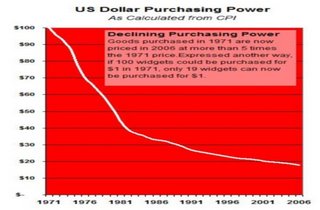Euroland facing a Dollar plunge

The global systemic crisis will provide a serious test for Euroland and will determine whether the Euro is sustainable or not. The significant fall of the Dollar will automatically induce a strong upward pressure on the Euro against this currency, and against others linked to the Dollar (the Chinese currency namely). The situation will provoke an immediate and significant fall of the competitiveness of European companies exporting towards the Dollar zone, with a negative impact on European exportations, accompanied by an immediate aggravation of unemployment in the Euro zone.In this situation, some countries will be tempted to get away from the Euro in order to avoid difficulties. However this centrifugal force will be opposed by the level attraction of the one and only zone of monetary stability that Euroland will provide. If a conflict between these two opposite trends develops within Euroland, it will be even more perceptible in non-Euroland member EU-countries.
In this regard, Euroland leaders should be concerned with the need of new member-states (all of them future members of Euroland) of a solid anchorage. These countries will be the most exposed to instability and the situation will impose clear perspectives as well as efficient protection mechanisms for their currencies. In parallel, the case of the three ‘non-Euroland but EU-15 members’ – Denmark, Sweden and the UK – will soon emerge as these countries will be in a rather tricky situation. Denmark and Sweden will most probably express a desire to join Euroland which will not be opposed by public opinions. The British case is more complex because, as detailed previously in this issue, the UK is closely intermingled with the Dollar zone and their amount of assets in US Dollars is very superior to those of the rest of the EU (about a third of Europe). In this condition, and in the case of such a crisis, their economic and financial situation is difficult to anticipate, further than predict that their situation will be the trickiest of all European countries. The City has been playing for decades the role of Wall Street’s side-channel. A financial and monetary crisis affecting the Dollar would therefore be catastrophic for the London financial centre.
- a scenario of « anchorage » of the new Member states, going as far as considering their fast entry in Euroland in case of emergency; Italy was accepted while it did not comply (by far) to the requested criteria; there is no reason then why it would not be possible to integrate the 10 new Member-States to Euroland, if the situation imposed it.
- a scenario of fast negotiation-integration with Sweden and Denmark.
- and a more random scenario, analysing the possibilities regarding the United-Kingdom.
In the framework of such a crisis, UK’s entry in Euroland should be based on the definition of monetary, financial and economic fundamentals clearly compatible with the Euro zone, otherwise the UK would import in Euroland its Dollar-related instability. Euroland leaders should start today working on the elaboration of these indispensable conditions.
This work of anticipation highlights the fact that the Euroland governance will be the decisive element for the Euro zone to cross as safely as possible this severe world crisis. Today already, within the EuroGroup and the ECB, a work group should start to elaborate the above mentioned scenarios in order to avoid being taken by surprise when the crisis is released. The Euroland needs a real Plan B because the Europeans know that a Plan A solely is not enough.
In parallel, Euroland leaders should set up two instruments to gain partial control over the course of events:
1) A light, but politically visible and legitimate, institution of economic steering of Euroland - the Euroland Secretariat - totally distinct from EU institutions, even physically (neither Brussels, nor Luxembourg, nor Strasbourg), in order not to be affected by the current rejection of EU institutions. Its first objective would be to regain the Europeans’ confidence, and to show that their democratically elected « heads » are commanding… and that the “commands” are efficient. The Euroland Secretariat will be this instrument and it will enable to define the common economic, industrial and social answers to the negative effects of the crisis.
2) A legitimate and democratic political authority which can only be a « Euroland Summit » regularly held, one every four months, capable of orienting, piloting, reassuring and reacting rapidly.
Moreover Euroland leaders, politicians and central bankers, together with their Asian, Russian, oil-producing countries’ counterparts, should consider to design the strategy required to get out of the Dollar-era in good order.
Like for any human construction, it is when difficulties arise that will be measured the Euro’s capacity to keep up to its promises of stability and protection of the hundreds of million Europeans sharing or about to share it. Failure would be simply be the end of the EU project.
Copyright © LEAP/E2020 (Laboratoire Européen d’Anticipation Politique)


0 Comments:
Enregistrer un commentaire
<< Home